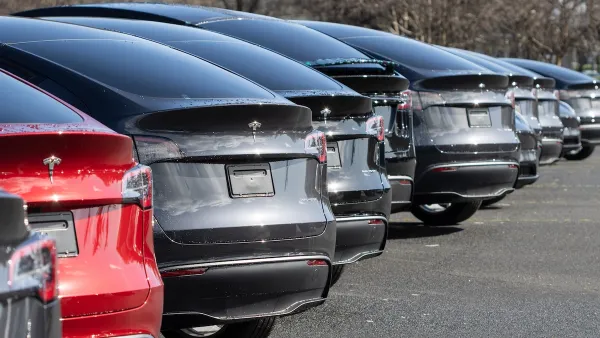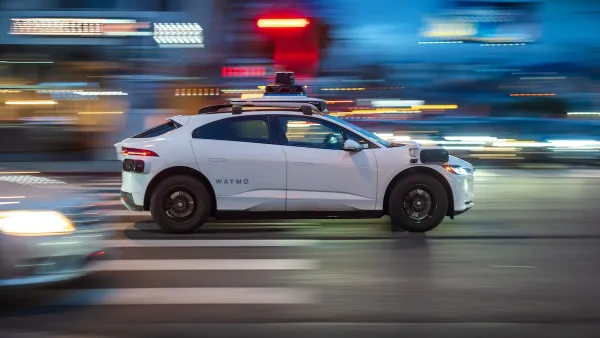There's a potential consequence from autonomous vehicles that has mostly gone unnoticed: municipal financial ruin.

Susan Crawford, Wired contributor, Harvard Law School professor, and author, is broadcasting a warning about the unintended consequences of an autonomous future after attending Meeting of the Minds in Ann Arbor, Michigan. There, Crawford attended a session on autonomous vehicles that included Nico Larco, director of the Urbanism Next Center at the University of Oregon. Larco is recidted with reminding attendees, and now you, of how many taxes and fees automobiles generate:
…many cities balance their budgets using money brought in by cars: gas taxes, vehicle registration fees, traffic tickets, and billions of dollars in parking revenue. But driverless cars don't need these things: Many will be electric, will never get a ticket, and can circle the block endlessly rather than park. Because these sources account for somewhere between 15 and 50 percent of city transportation revenue in America, as autonomous vehicles become more common, huge deficits are ahead.
While some cities are taking steps to create new revenue generating mechanisms that reflect the operation of self-driving cars and other forms of autonomous vehicles, many localities are limited by state control. "Michigan, for example, does not allow Detroit [pdf], a short drive away from that Ann Arbor ballroom, to make any rules about driverless cars," according to Crawford.
Crawford expects that already struggling cities (and communities within cities) will be particularly disadvantaged by the next era of transportation technology. Luckily, there are models for transportation funding that could provide at least a partial solution to the looming crisis. In the meantime, however, Crawford says, " we need to press Pause on aggressive plans to deploy driverless cars in cities across the United States."
FULL STORY: Autonomous Vehicles Might Drive Cities to Financial Ruin

Planetizen Federal Action Tracker
A weekly monitor of how Trump’s orders and actions are impacting planners and planning in America.

Maui's Vacation Rental Debate Turns Ugly
Verbal attacks, misinformation campaigns and fistfights plague a high-stakes debate to convert thousands of vacation rentals into long-term housing.

Restaurant Patios Were a Pandemic Win — Why Were They so Hard to Keep?
Social distancing requirements and changes in travel patterns prompted cities to pilot new uses for street and sidewalk space. Then it got complicated.

In California Battle of Housing vs. Environment, Housing Just Won
A new state law significantly limits the power of CEQA, an environmental review law that served as a powerful tool for blocking new development.

Boulder Eliminates Parking Minimums Citywide
Officials estimate the cost of building a single underground parking space at up to $100,000.

Orange County, Florida Adopts Largest US “Sprawl Repair” Code
The ‘Orange Code’ seeks to rectify decades of sprawl-inducing, car-oriented development.
Urban Design for Planners 1: Software Tools
This six-course series explores essential urban design concepts using open source software and equips planners with the tools they need to participate fully in the urban design process.
Planning for Universal Design
Learn the tools for implementing Universal Design in planning regulations.
Heyer Gruel & Associates PA
JM Goldson LLC
Custer County Colorado
City of Camden Redevelopment Agency
City of Astoria
Transportation Research & Education Center (TREC) at Portland State University
Jefferson Parish Government
Camden Redevelopment Agency
City of Claremont





























